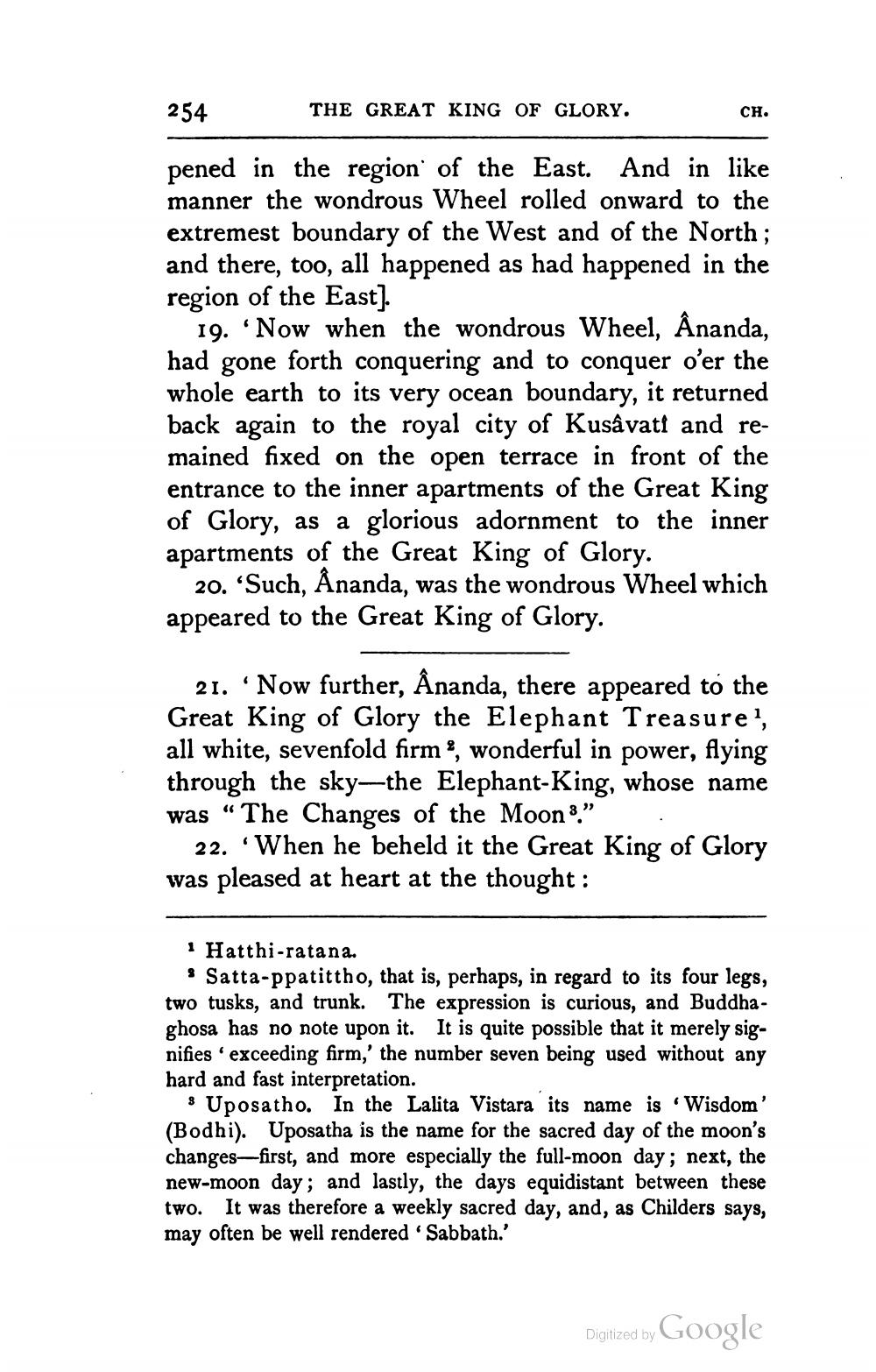________________
254
THE GREAT KING OF GLORY.
CH.
pened in the region of the East. And in like manner the wondrous Wheel rolled onward to the extremest boundary of the West and of the North; and there, too, all happened as had happened in the region of the East).
19. Now when the wondrous Wheel, Ânanda, had gone forth conquering and to conquer o'er the whole earth to its very ocean boundary, it returned back again to the royal city of Kusâvati and remained fixed on the open terrace in front of the entrance to the inner apartments of the Great King of Glory, as a glorious adornment to the inner apartments of the Great King of Glory.
20. "Such, Ånanda, was the wondrous Wheel which appeared to the Great King of Glory.
21. Now further, Ânanda, there appeared to the Great King of Glory the Elephant Treasure, all white, sevenfold firm, wonderful in power, flying through the sky—the Elephant-King, whose name was “The Changes of the Moon 8.”
22. When he beheld it the Great King of Glory was pleased at heart at the thought :
1 Hatthi-ratana.
Satta-ppatittho, that is, perhaps, in regard to its four legs, two tusks, and trunk. The expression is curious, and Buddhaghosa has no note upon it. It is quite possible that it merely signifies' exceeding firm,' the number seven being used without any hard and fast interpretation.
8 Uposatho. In the Lalita Vistara its name is Wisdom' (Bodhi). Uposatha is the name for the sacred day of the moon's changes—first, and more especially the full-moon day; next, the new-moon day; and lastly, the days equidistant between these two. It was therefore a weekly sacred day, and, as Childers says, may often be well rendered .Sabbath.'
Digitized by Google




